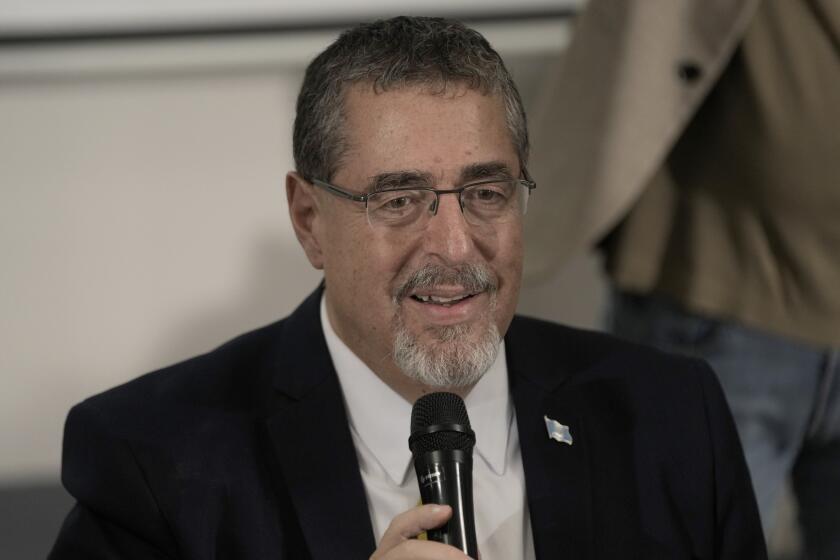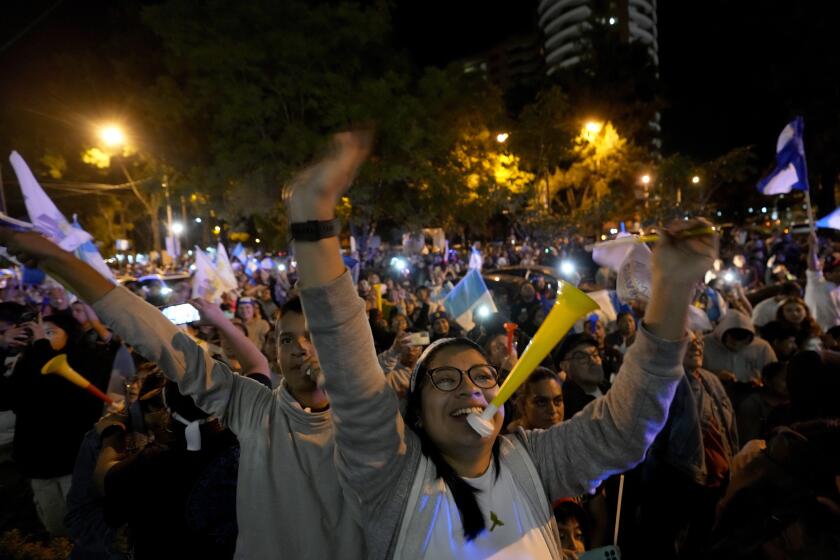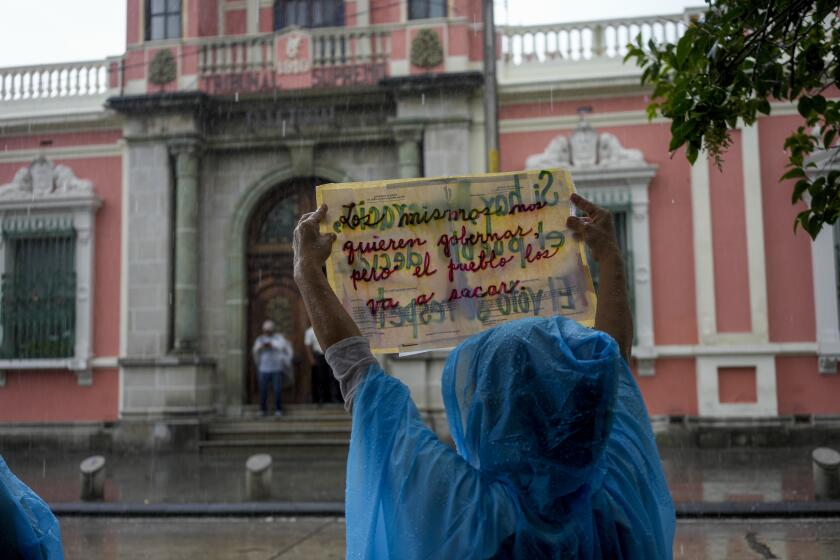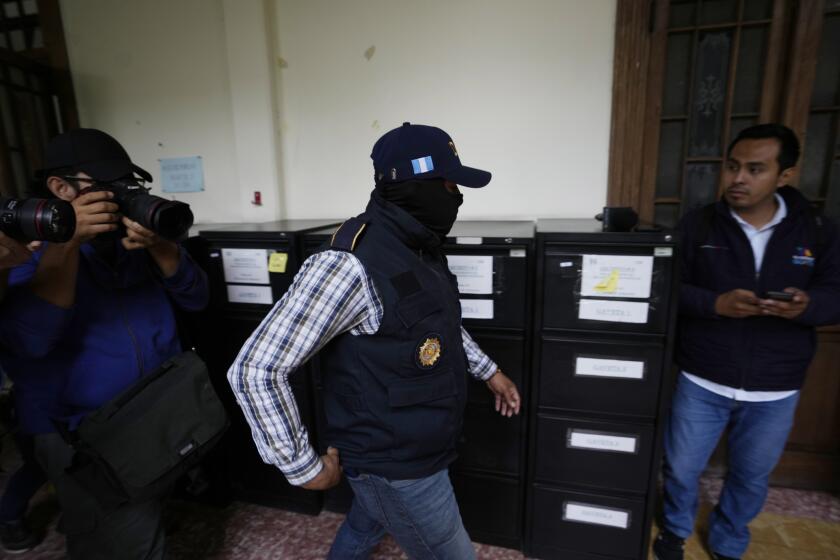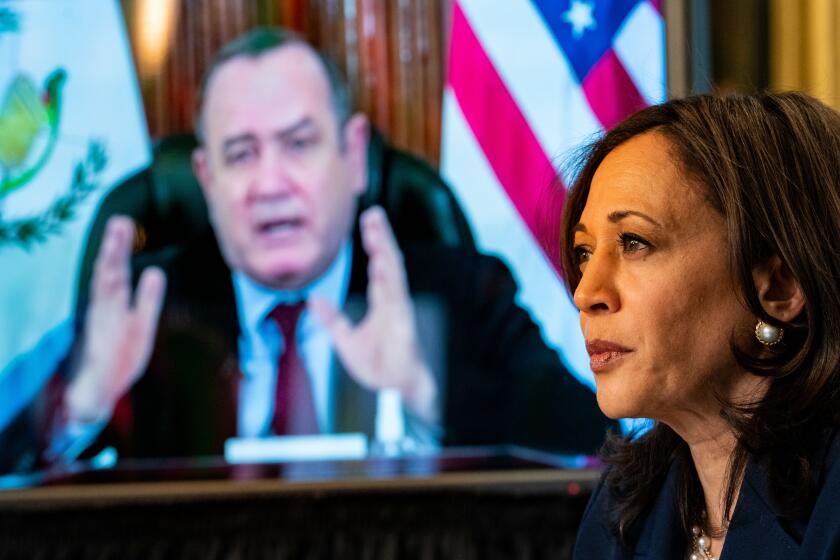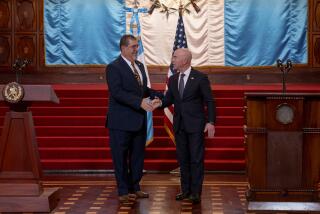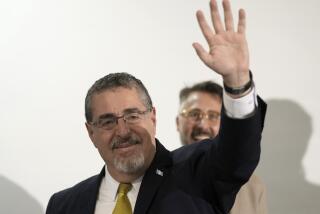Guatemalan president calls for transition of power to anti-corruption crusader Arévalo
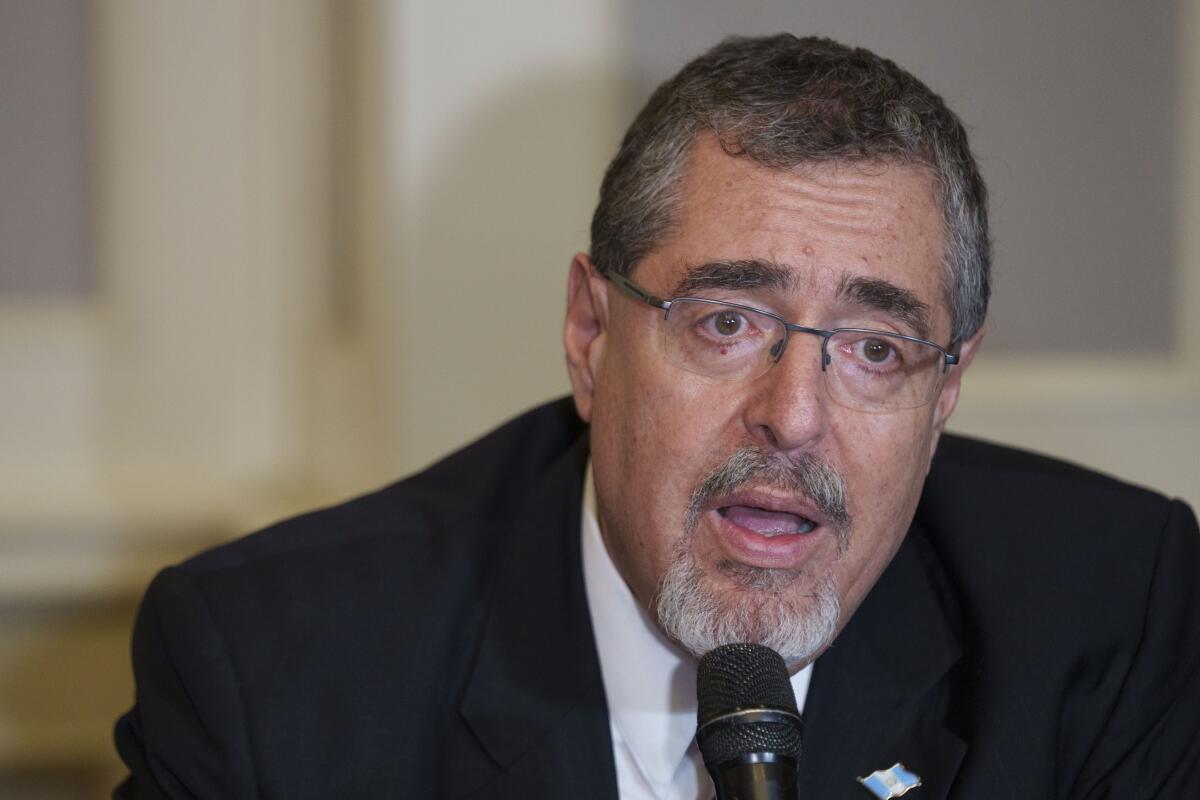
- Share via
GUATEMALA CITY — Guatemalan President Alejandro Giammattei called Tuesday for a democratic transition of power to anti-corruption campaigner and president-elect Bernardo Arévalo and his Seed Movement party, which have faced waves of legal attacks in attempts to invalidate his rise to power.
The president’s statement came after a night of political chaos in the Central American nation following one of its most tumultuous elections in recent history.
Hours before the country’s Supreme Electoral Tribunal certified late Monday that Arévalo won this month’s presidential election, another government body — the electoral registry — suspended his party from all political activities. The Seed Movement asked the country’s top electoral authority to lift the suspension.
Arévalo called the suspension illegal at a news conference Monday and said that now that the vote has been certified, “no one can impede me from taking office on Jan. 14.”
Guatemala elections registry suspends the party of Bernardo Arévalo, the progressive candidate whose presidential victory is newly certified.
Arévalo and his party, posing a threat to those keen on holding onto power, have faced a slew of legal challenges, allegations of irregularities and assassination plots, according to international observers.
Arévalo already appeared certain to take office as president in January, after easily beating conservative former first lady Sandra Torres in a runoff. He got 60.9% of the votes, while she had 37.2%.
In a brief message to Guatemalans on Tuesday, Giammattei said he was satisfied at having put all the resources into making the electoral process peaceful. Despite accusations of voter fraud by Torres, the president said there were no “significant” incidents in the voting process.
“Now the doors are open to an orderly, transparent and efficient government transition,” Giammattei said.
The party of former first lady Sandra Torres, who lost Guatemala’s presidential election to Bernardo Arévalo, has filed a complaint alleging fraud in vote counting.
Still, the suspension throws into doubt whether Seed Movement lawmakers can take their 23 seats in Congress, and also underscores the uphill battle faced by Arévalo, who campaigned on a progressive and anti-corruption platform.
The Seed Movement requested that the suspension be nullified, basing its request on a June ruling by Guatemala’s constitutional court holding that no political force can be suspended during an electoral period. It will be up to the Supreme Electoral Tribunal to rule on the party’s standing.
Fearing democracy is at risk, Guatemalans are posting certified election forms on social media to show there wasn’t fraud in the presidential vote.
“We’re basically entering really unexplored legal terrain,” said Tiziano Breda, a Central America expert at Italy’s Instituto Affari Internazionali. “But Arévalo’s victory is very hard to overrule. I’m not sure they want to risk great international concern, a diplomatic crisis, or what it could imply socially, the unrest it could provoke.”
He said he expects Arévalo’s opponents to continue trying to hamstring other parts of his administration to make it as hard as possible for him to govern.
Torres had appeared to have a clear shot at the presidency earlier this year after various other competitors were eliminated from the race, sparking concerns among some critics about the country’s democracy.
Guatemala’s political turmoil deepens as prosecutors targeted progressive presidential candidate Bernardo Arévalo before a runoff election.
In the first round of voting, the little-known Arévalo emerged from a crowded presidential field as a surprise contender, winning the right to go into the runoff with Torres, who came to represent the country’s elite at a time that Guatemalans are hungry for change amid discontent over endemic corruption.
His win has been the source of a legal back-and-forth between various governmental entities and courts, some staffed with officials who have been sanctioned by the United States on charges of corruption.
Recent attacks on Judge Miguel Ángel Gálvez are part of a broader campaign on Guatemala’s courts that have forced nearly two dozen judges and prosecutors into exile.
Torres, who hasn’t conceded defeat, has alleged voter fraud. Raids by prosecutors on his party’s headquarters have caused concern in the international community and among Guatemalans. Earlier this week, the Organization of American States’ human rights commission asked that Guatemala provide protection for Arévalo after reports emerged of possible plots to kill him.
Breda said the existing establishment has tried hard to overturn the results. “Even if they don’t manage to, this will have an implication of hindering a transition to Arévalo’s presidency,” he said.
More to Read
Sign up for Essential California
The most important California stories and recommendations in your inbox every morning.
You may occasionally receive promotional content from the Los Angeles Times.
